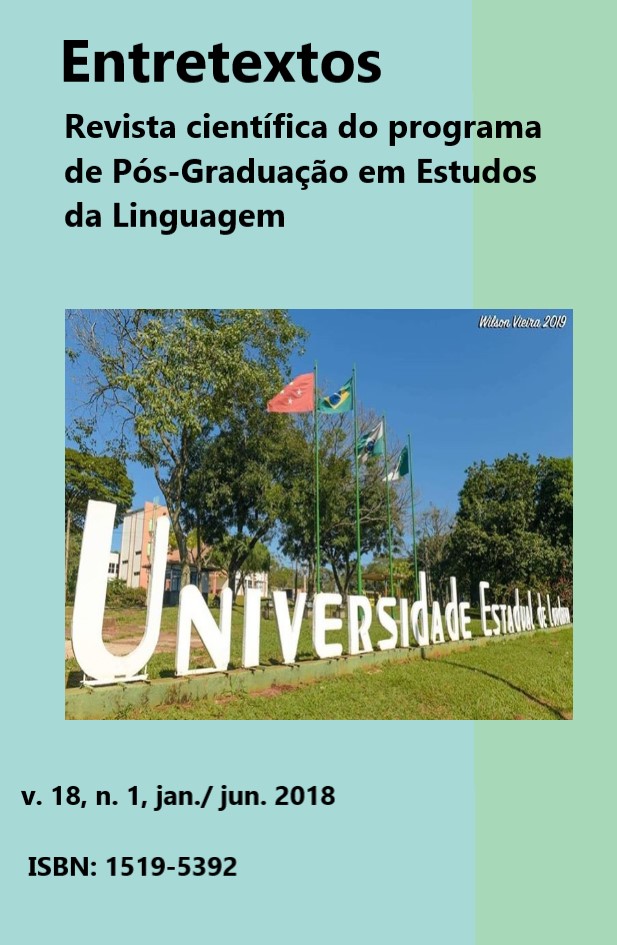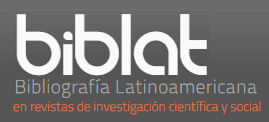Portuguese language in East Timor: writing and authorship
DOI:
https://doi.org/10.5433/1519-5392.2018v18n1p31Keywords:
Teacher education, Writing, Portuguese language, East TimorAbstract
Since 2002, Portuguese has become an official language and has been used in education in East Timor, together with Tetum. Nowadays, Portuguese has been reintroduced in this country by means of initiatives which most often involve changes in school curricula and teacher education. In our experience in the education of teachers and prospective basic education teachers, the greatest challenge posed by Portuguese is to learn how to write it. For this reason, the aim of the present work is to analyze the difficulties faced by senior students when writing their undergraduate thesis for completion of the Primary Education degree program at the National University of East Timor (UNTL). The utterances produced by 27 students were analyzed, using Mikhail Bakhtin’s theory of dialogism as a reference. The concepts of chronotope and intonation were particularly used as categories of analysis. Our analysis has shown that most participants in this research consider the Portuguese language as the major obstacle to writing their undergraduate thesis. However, despite this difficulty, they appreciate the requirement of writing academic works in Portuguese. Moreover, their answers refer to the relationship between mastery of language and argumentative capacity and point to the fact that subjects find it difficult to feel like author-as-creator (in the sense of the term as coined by Bakhtin) of their written production in a non-native language.Downloads
References
BAKHTIN, Mikhail Mikhailovich. Estética da criação verbal. 6. ed. São Paulo: Martins Fontes, 2011.
BAKHTIN, Mikhail Mikhailovich. Formas de tempo e de cronotopo no romance: ensaios de poética histórica. In: BAKHTIN, Mikhail Mikhailovich. Questões de literatura e de estética: a teoria do romance. Tradução: Aurora Fornoni Bernadini et al. 5. ed. São Paulo: Hucitec, 2002. p. 211-362.
BAKHTIN, Mikhail Mikhailovich. Marxismo e filosofia da linguagem. 14. ed. São Paulo: Hucitec, 2010.
CARVALHO, Manuel Belo de. Formação de professores em Timor-Leste: contributos para a construção de um modelo de formação inicial e contínua. 2007. Dissertação (Mestrado em Educação) - Universidade do Minho, Braga, 2007.
FARACO, Carlos Alberto. Autor e autoria. In: BRAIT, Beth (Org.). Bakhtin: conceitos-chave. São Paulo: Contexto, 2008. p. 37-60.
GUIMARÃES, Joice Eloi. O programa Olimpíada de Língua Portuguesa: escrevendo o futuro e sua relação com as ações pedagógicas na sala de aula. 2013. 206 f. Dissertação (Mestrado em Educação) – Universidade Federal de Santa Catarina, Florianópolis, 2013.
GUIMARÃES, Joice Eloi. Olhar dialógico para o ensino de língua portuguesa em Timor-Leste. Revista Advérbio, Cascavel, v. 10, n. 20, p. 120-135, 2015.
TIMOR-LESTE. Decreto-Lei nº4/2015, de 14 de Janeiro. Aprova o currículo nacional de base da educação pré-escolar. Jornal da República, Dili, série 1, n. 2, p. 7736, 14 jan. 2015. Disponível em: http://www.mj.gov.tl/jornal/public/docs/2015/serie_1/SERIE_I_NO_2.pdf. Acesso em: 30 jan. 2015.
TIMOR-LESTE: “Quem não souber falar Português é melhor estar calado”, diz uma diretora de uma Escola Básica. Global Voices, 18 jul. 2016. Disponível em: https://pt.globalvoices.org/2016/07/18/timor-leste-quem-nao-souber-falar-portugues-e-melhor-estar-calado-diz-diretora-de-uma-escola-basica/. Acesso em: 28 set. 2016
Downloads
Published
How to Cite
Issue
Section
License
Entretextos adota a Licença Creative Commons Attribution 4.0 International, portanto, os direitos autorais relativos aos artigos publicados são do/s autor/es.
Sob essa licença é possível: Compartilhar - copiar e redistribuir o material em qualquer suporte ou formato. Adaptar - remixar, transformar, e criar a partir do material, atribuindo o devido crédito e prover um link para a licença e indicar se mudanças foram feitas.






















